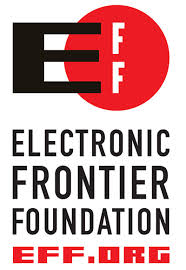 Think you know how your local cops are spying on you? The ACLU of California’s “Making Smart Decisions About Surveillance: A Guide for Communities” is a new resource that can help you figure out what surveillance technology is being deployed in your community—and what you can do about it. And as we’ve pointed out, while we hope everyone continues to let Congress know that it’s time for real changes to spying by federal agencies, the use of surveillance techniques and technology by local law enforcement is an area ripe for grassroots organizing.
Think you know how your local cops are spying on you? The ACLU of California’s “Making Smart Decisions About Surveillance: A Guide for Communities” is a new resource that can help you figure out what surveillance technology is being deployed in your community—and what you can do about it. And as we’ve pointed out, while we hope everyone continues to let Congress know that it’s time for real changes to spying by federal agencies, the use of surveillance techniques and technology by local law enforcement is an area ripe for grassroots organizing.
Although the guide is specifically directed at California, it contains a wealth of information and ideas that are helpful for grassroots activists across the country who are concerned about the proliferation of drones, automated license plate readers, facial recognition, and more in their community. From Washington state to Washington D.C., the model ordinance and tips are useful for any concerned residents.
The guide focuses on the need for community engagement, noting: “[T]he time to engage with your community is at the very beginning of the process, before any funding is sought, technology is acquired or system is used.”
Fortunately, ACLU provides a step by step process activists can take to ensure this happens, explaining how to do a “surveillance impact report.” The process includes an assessment of all costs—including potential costs to civil liberties:
Surveillance can easily intrude upon the rights of residents and visitors if it is used, or creates the perception that it may be used, to monitor individuals and groups exercising their rights to freedom of expression, association, and religion — freedoms that public officials are sworn to protect. In addition, surveillance can erode trust in law enforcement, making it harder for officers and community members to work together to keep the community safe.
We were especially pleased to see the focus on understanding technology. The guide recommends that a surveillance impact report include “information describing the technology, how it works, and what it collects, including technology specification sheets from manufacturers.”
This is an issue that we repeatedly emphasized during the fight around Oakland’s Domain Awareness Center, a surveillance system that could enable ubiquitous privacy and civil liberties violations against Oakland residents. The DAC was pushed through Oakland’s City Council with little review until activists put serious pressure on the Council.
In two letters, EFF pointed out that the Council didn’t appear to have a clear understanding of how the system would work and certainly hadn’t provided that information to the community. After a long battle, the DAC was reduced in scale—but not until after the cash-strapped city of Oakland was forced to spend money removing components of the system due to the community backlash.
The DAC fight is among the valuable case studies ACLU includes in the guide. These case studies provide inspiration and experience for anyone who wants to use the resources included. We hope that activists will use this guide as a way to ensure that, when it comes to local use of surveillance equipment, everyone knows: the community is watching the watchers.


